WARNING: Contains spoilers for those who have not yet watched the series 6 Christmas Special
In a blog post of the same title, I have pointed out how the historical reality facing millions of women of all classes after the First World War meant that Lady Mary’s story line since series 4 which culminated in a second marriage was anachronistic, poorly handled and illustrated how bankrupt Downton’s narrative has become since Matthew’s death.
This year’s Christmas special which signals the end of this programme after six series in my opinion was highly unsatisfactory and contrived. However since Downton has barely lived up to its hype then perhaps I was expecting too much but as the Christmas special dragged on with nothing happening and transmogrifying into an episode of the popular 1990s programme Blind Date, all that was missing was an appearance from Cilla Black who fronted the programme in order to liven up what was essentially a lifeless, lacklustre and laboured two hours.
One by one, characters were being paired up and happy endings clunked into place, with even Isobel Crawley finally tying the knot with Lord Merton after some skulduggery from her and the Dowager Countess to rescue him from his odious son and daughter-in-law, and a hint that Mrs Patmore and Mr Mason will get their happily ever after. The piece de la resistance however was the marriage of Lady Edith to Bertie Pelham (now the Marquess of Hexham after the sudden death of the incumbent who happened to a distant cousin – shades of Matthew Crawley here). If one recalls what happened in series 6, it was Edith’s inability to disclose the true identity of her daughter Marigold that scuppered her chances of marriage to Pelham and it is only after the usual convoluted twists and turns that the Christmas special ended in marriage between the two.
It might just be me but I found myself unmoved by the wedding and thought it was a cop out especially in light of the fact that Edith is also in her thirties which by the standards of the 1920s is middle aged, already has a daughter and crucially has the resources to make the most of the greater opportunities afforded to women during this period.
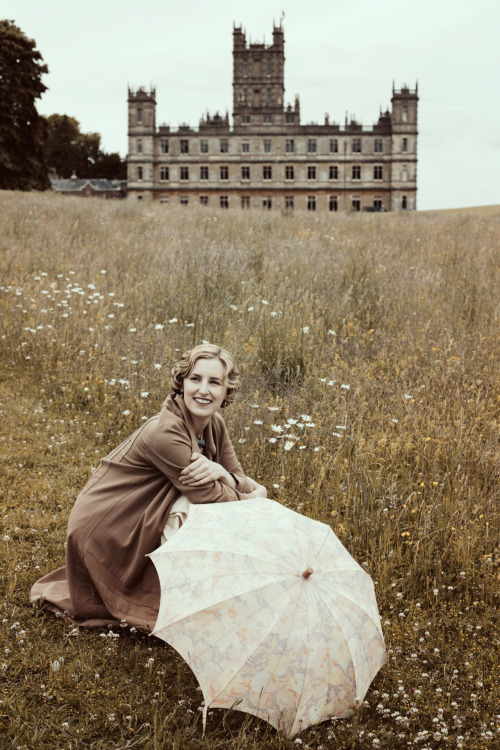
One aspect that made Edith different from her sister Mary apart from the clichéd “unlucky in life and love” is that midway in series 3 she starts a career in writing after a letter she writes to a newspaper is noticed by a magazine editor, Michael Gregson, who offers her a job in his magazine. This being Downton Abbey where everyone’s right to an emotional relationship is paramount, she begins a relationship with Gregson which is essentially a rebound after being jilted at the altar by Sir Anthony Strallan. To cut a long story short, he is married but gets her pregnant then disappears to Germany in order to obtain citizenship which will enable him to divorce his mentally disabled wife and marry Edith. Later he turns up dead and she is left with a daughter whose existence she contrives to keep a secret from her own immediate family.
As a result of Gregson’s death, she is left his estate which includes his home in London and ownership of his magazine. Yet again however, any potential for this to show viewers that women such as Edith have more options than marriage and motherhood after the war is shunted aside in favour of her disastrous love life which casts her as either Downton’s answer to Job from the Bible or the Strictly Come Dancing professional Anton du Beke: forever lumbered with disasters and duds. In an interview, Julian Fellowes claimed that certain people are doomed to be forever unlucky which to me betrays a lack of understanding of human nature and the idea that people are the architects of their own destiny and that luck only plays a small part in a person’s fate.
While no doubt that Edith and Bertie’s wedding pleased the fans, I thought this was again another sign of Fellowes not wanting to be more original and that historical accuracy which he claims is important to him rings hollow. The wedding shows his obsession with marriage and the emotional life that he has imposed pretty much on every character with since the end of series 2 in the absence of a coherent narrative. While there was much crowing that Edith would become a marchioness and chatelaine of a large castle (conveniently forgetting that Bertie’s predecessor was essentially bankrupt) as demonstrated by her parents’ embarrassing behaviour in acting like Mr and Mrs Crawley from Pinner whose daughter has landed a jackpot on the marriage market, in reality this wedding is a Pyrrhic victory. The determination of her new mother-in-law to make her a chatelaine and her son into an exemplary moral landlord shows a denial of the reality that this this way of life is dying – so in effect Edith has essentially been shackled to the past she was making every attempt to leave behind.
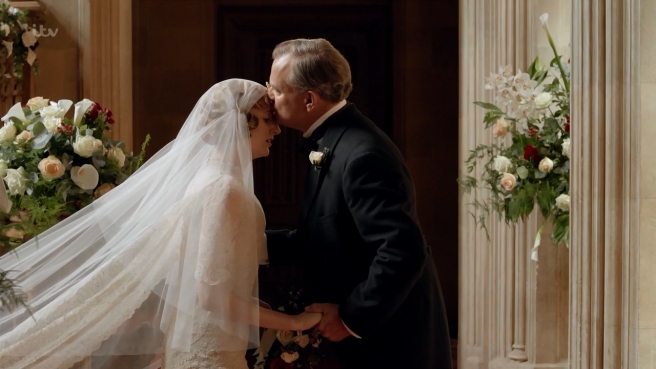
Having Edith also get married also shows how Fellowes just like with Mary ignores the alternatives that are open to a woman like her. Given that Edith (like Mary) is also in her thirties and hence considered middle aged, she would have been overlooked by men who had several seasons worth of debutantes to choose from. And the fact that Pelham is now a marquess, in real life someone like him would be more inclined to choose a younger woman who could bear children (preferably sons) in order for Pelham to pass on the title and what’s left of the estate: not a woman in her thirties whose family does not have a reputation for fertility.
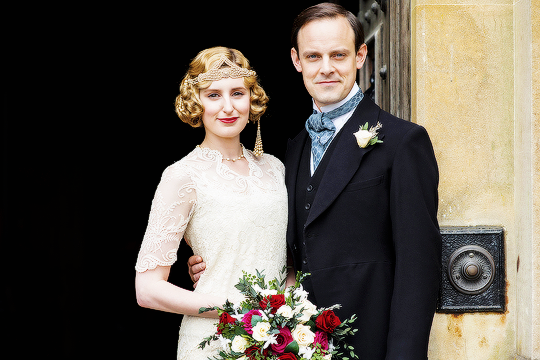
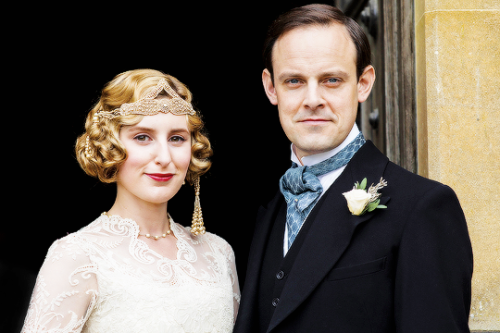
I may be in the minority but I think it would have been better had Edith not married Bertie and instead moved permanently to London, taking Marigold with her and focus on building her career as a writer and magazine owner. Apart from reflecting more the historical reality of the period, Edith with her thriving career would demonstrate that beginning in the 1920s, women were becoming aware that there were alternatives to simply being wives and mothers. People were also increasingly looking to self-made personalities not aristocrats as role models and this signals another shift as the aristocracy are further pushed to the margins and into the realms of irrelevance.
Just like with Edith, Daisy Mason the assistant cook is another one who has been given short shrift by Fellowes. Apart from spending the full run of Downton Abbey whining and despite the education she has been given by several Good Samaritans, in the end the education and passing her examinations has been meaningless as she’s paired with Andy the footman who has taken on a position with her father-in-law. For all the bellowing about “CHAAAAANNNNGGEEEE!” nothing has changed. Mrs Hughes is going to give up a job that gives her status, independence and respect to be nurse to a man who is crotchety and picky when he’s well, never mind sick and has moreover had to hand over his cherished job and family to a hated rival – and you could see from the barely concealed smirk on Thomas’s face how much he enjoyed that. Cora on the other hand, far from “spreading her wings” and becoming more independent has finally discovered after 35 years of idleness what she should have been doing as countess in the first place. It seems to me that what Fellowes is saying here, despite his admiration for strong women is that they shouldn’t bother to exert their strength in improving themselves, carving out careers and making the world better. Instead they should simply get married and exert that strength by manipulating their husbands.
Going back to Edith; despite the bad choices, the tiresome squabbling with Mary and the appalling way she has used and abused the family who cared for Marigold, I always thought that she had the most potential to break away from the past and establish herself as her own person with a thriving business and career just as many real life women did in the 1920s. It seems here that what Fellowes is saying is that Edith has had a taste of freedom and independence with the magazine but just in case she gets too much of a taste for that and being her own woman she’s been hauled back to do what women like her are supposed to do, which is marry, support her husband and prop up a way of life that’s in its death throes. She says to Mary when she finds out her sister’s role in bringing about the engagement that she, Edith, has her life back, but in reality she’s had it taken away from her. She’s swapped Cora and the Dowager for mother-in-law and just like she doesn’t stand up to them I don’t see her standing up to her mother-in-law; the circumstances in which Bertie broke up with her in the first place could return to haunt her at the first sign of trouble; and no doubt she’ll be “encouraged” to give up the magazine as it doesn’t fit with being a marchioness and a chatelaine. So far from a happy ending, Edith continues her run of disaster of Biblical proportions. Which is a tragedy of epic proportions really.
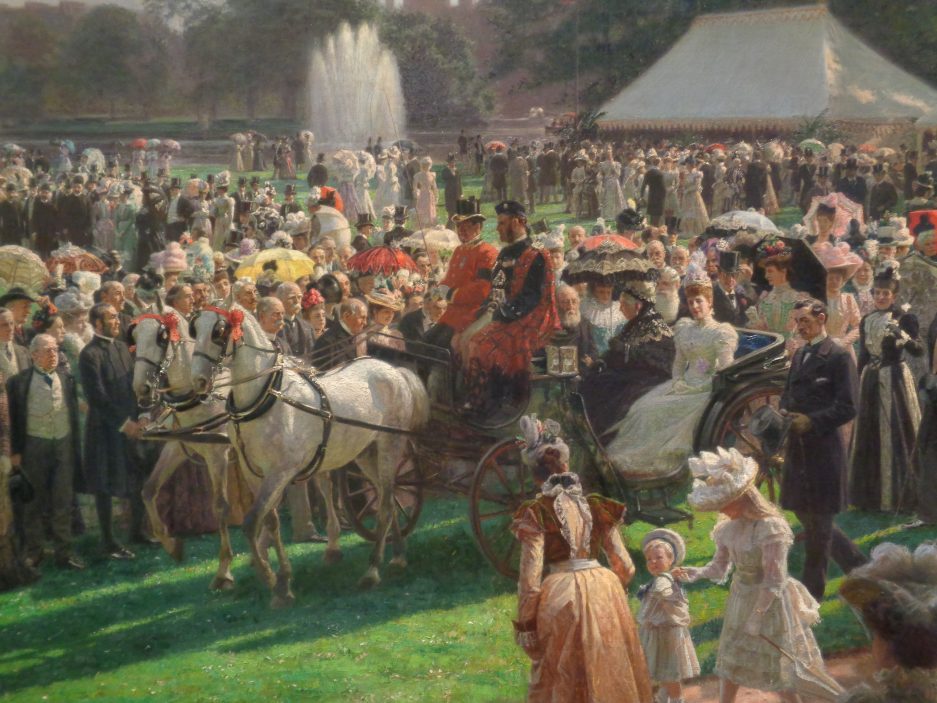
A brilliant article and so very true. It would have been inspiring for Edith to go to London and be an independent career woman. And it would have been a nice contrast to her sister Mary- they have always been opposites and it would have underlined this point. Especially as Mary always seemed to be ‘the ambitious one’ and Edith ‘the one who would be left caring for her aged parents.’ A clever turnaround of their fortunes.
Also, Edith could have taken Thomas with her too as her butler/ servant, he would have had a much better life in London. She owed him her life (which she seems to have forgotten) and could at least have returned the favour of giving him a better life than being stuck at Downton forever.
LikeLiked by 1 person
Thank you for your comment and I agree with your point that by leaving Edith unmarried and thereby free to pursue her career, it would have been a very sharp and good contrast to Mary – married again but lumbered with an increasingly unsustainable lifestyle while she blazes ahead and lives a life that would have been unheard of before WW1. Plus good point about the reversal of roles because it will underline the fact that caring for an aged Robert and Cora would fall to Mary rather than Edith as expected.
I think your suggestion about Thomas’s fate would have been good as well but I am of the opinion that he should have left back in series 1 or 3 as he was increasingly becoming redundant and his story lines pointless.
LikeLike
I think the best way to describe Edith’s ending is a “hollow victory”. I mean I’m glad she’ll outrank Mary ,married the man she loves, and is moving away from Downton Abbey (one of the few characters to do so- I was hoping Thomas would too but that fell flat) but I wanted a more dynamic storyline for her. Since season 4 I’d been hoping that she would move to London to live with Aunt Rosamund or Gregson and meet with writers and artists and maybe even become an author herself.
Maybe I’m being stupidly optimistic (probably)but I think she and Bertie could be very happy together. For one, she seems have learned her lesson about keeping people in the dark (something Cora still hasn’t learned) and Granny Pelham also seems to be less stubborn than Violet, given the way she quickly went from disapproval to approval of the wedding ( it was a bit too quick in my opinion, but whatever). I’m profoundly grateful that at least there won’t be a season 7 so Fellowes can ruin another marriage (he can’t seem to write happy, normal marriages can he?).
Fellowes seems to be a very cynical person. In addition to believing that some people are always unlucky, he also believes that people don’t change (which explains the lack of character development). Also,I just really disliked how this episode implied that marriage/romance= happy ending. Why can’t one be happy and single!!?? Even Mrs. Patmore got paired up.
I’ve heard that he’s writing another show called “The Gilded Age” about early-19th century America. This fills me with dread- if he can screw up British history,imagine what he’ll do with American history. Hopefully, it will either be cancelled or they’ll make him work with a more competent writer.
LikeLiked by 1 person
I agree with your comment and its possible that Edith might be happy with Bertie but the signs seem to be pointing that she’ll repeat her parents’ pattern of marriage. Also several viewers have described Bertie as “wet” which doesn’t bode well at all and I can picture Mrs Pelham dominating the marriage.
I agree with you about the cynicism and like you I dislike the attitude of marriage/romance = happiness which is highly simplistic and unrealistic. I am also relieved that this is the last and the weakness of the last 3 series especially showed that Downton had overstayed its welcome and was way past its sell by date.
As for “The Gilded Age” that has bee reported on and of for the past 3-4 years and yet we don’t know what real premise of this programme which makes me think it might be dead as a dodo. Also if Fellowes is working on a US programme, he’ll be in for a culture shock. The US system relies on a collaborative effort involving a team of writers and editors with the latter being heavily involved in ironing out niggles before the cameras start rolling. Crucially as well he can’t get away with relying on a royal commentator as a historical adviser.
LikeLike
Fellowes working in collaboration with other writers gives me hope that the new show might not turn out too bad. If it happens (though, like you, I doubt it will, since we haven’t heard much about it in the past few years) I hope they would limit it to only 2 or 3 seasons-Downton really got stale after that point.
In the meantime, I think I’m just relieved that it’s over and now fanfiction can take over. Happy New Year’s!
LikeLiked by 2 people
Sadly with Downton, TPTB got too greedy. It should have ended when Dan Stevens said he wasn’t renewing.
LikeLiked by 1 person
Forgot to add, happy New Year to you as well.
LikeLike
Yes, the fanfiction is much better!
LikeLiked by 1 person
I agree but there are lots that are of questionable quality as well.
LikeLike
Yes, but we can pick and choose. Some of the ideas are brilliant.
LikeLiked by 1 person
True. I have read a few good Matthew/Mary and Sybil/Branson ones
LikeLike
Wonderful commentary on the historical fiction vs. historical reality in Downton Abbey. Here in the U.S. the final season hasn’t been released yet, but I have been disenchanted with the series for a while. Like you, I thought there was an opportunity for Fellowes to do more with the characters in relation to the time period. Instead, it all began to feel rather sudsy. By last season, it had gone full blown historical soap opera. I’ll watch the final season, but mainly for the costumes and beautiful scenery. Hopefully the next historical drama will do a bit better!
LikeLiked by 1 person
Many thanks for your comment. I used to teach history and studied it to postgraduate level with the era Downton is set being my specialty so that was what partly attracted me to watch this in the first place. However I became disappointed by series 3 as that’s when the history began to disappear and the soap aspect really began to take over. reaching its nadir by series 4.
Whatever opportunity for Downton to be challenging and original went out of the window a long time ago and with the passage of time, one is also beginning to see the flaws from the very beginning.
LikeLiked by 1 person
I think Edith isn’t a person, who can be happy without love – even as independent woman. She’s very sensitive and tenderhearted and that’s why she won’t be truely happy as a single. I know – true life isn’t fair. But Edith’s another debacle would be boring and just as misguided as marriage. I am like her and I’m not quite happy without love. (PS Sorry for my very plain English – I haven’t used it for a long time, shame. Best regards from Poland)
LikeLike
I can see what you mean but if you notice before the proposal and wedding, Edith was looking forward to making a new life for herself and Marigold in London. Not to mention that Bertie was always much more eager than she was. Perhaps in time she could have found someone and make a late marriage but the way this ended, it didn’t ring true at all. Edith had more chemistry with Sir Anthony Strallan than with Bertie Pelham.
Your English is good and many thanks for commenting.
LikeLike